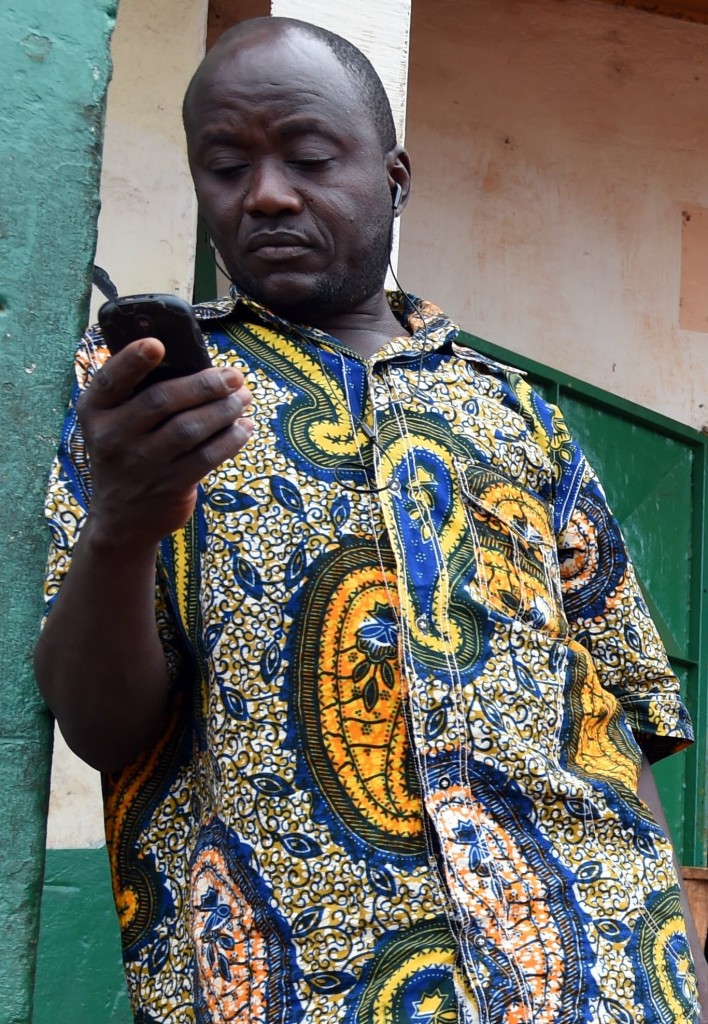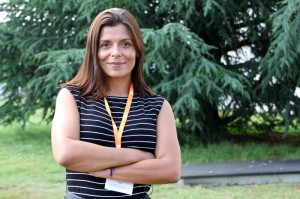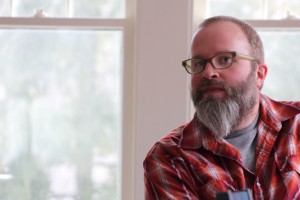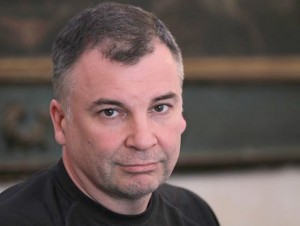Tackling the digital divide with cheaper services and better content
 The term “digital divide” is about who has, and who hasn’t got access to information and communications technologies such as the internet and mobile phones. And access doesn’t just mean actually having physical access (such as actually owning a phone, for example), access also means knowing how to use these technologies, and being able to afford to use them. There’s been a lot of progress in the developing world in bridging the digital divide, especially as mobile adoption rates have exploded over the past decade. But many challenges remain.
The term “digital divide” is about who has, and who hasn’t got access to information and communications technologies such as the internet and mobile phones. And access doesn’t just mean actually having physical access (such as actually owning a phone, for example), access also means knowing how to use these technologies, and being able to afford to use them. There’s been a lot of progress in the developing world in bridging the digital divide, especially as mobile adoption rates have exploded over the past decade. But many challenges remain.
Those challenges, and strategies to meet them, are the topic of a new report by the renowned American think-tank, the Brookings Institution. In the report, Darrell West, founding director of the organization’s Center for Technology Innovation, analyzes why some 4.3 billion people on the planet are still locked out of the digital revolution. onMedia put a few questions to West about what the divide is as wide as it is and what might be done about increasing connectivity in the developing world.
![]() read more
read more
Africa’s digital TV switch – the continent is “woefully unprepared”
 The switchover from analog to digital television broadcasting has already happened in various parts of the globe, bringing concrete benefits to viewers. In Africa, the digital switch is set for June. But a swathe of African countries are unprepared for the changeover. And many consumers on the continent are also confused about what the move to digital TV means. This could leave umpteen TV watchers sitting in front of blank screens, cut off from one of their main sources of information
The switchover from analog to digital television broadcasting has already happened in various parts of the globe, bringing concrete benefits to viewers. In Africa, the digital switch is set for June. But a swathe of African countries are unprepared for the changeover. And many consumers on the continent are also confused about what the move to digital TV means. This could leave umpteen TV watchers sitting in front of blank screens, cut off from one of their main sources of information
![]() read more
read more
Can journalists be activists? A conversation with Dan Gillmor

Photo: flickr/Moreno Berti, CC BY-ND 2.0
Whether journalists can be activists isn’t a new question, but it’s one that’s still being heatedly discussed– especially as digital technologies increasingly make it easy for anyone to create and publish media content. Some say journalism and activism are mutually exclusive because activism, by its very nature, compromises the journalism ethics of balance and neutrality.
Others argue activism is compatible with journalism as long as people are open about their agendas. One of these is Dan Gillmor, a columnist for the Guardian and a university professor who regularly teaches and writes about digital media. He is also the author of several books including Mediactive and We the Media (pdf), which popularized the concept of citizen journalism.
Ahead of a visit to Germany where he is speaking at DW’s Global Media Forum, Dan Gillmor spoke to onMedia about how he defines journalism, uncovering journalism in unexpected places and why he doesn’t trust Facebook.
![]() read more
read more
The future of African media is mobile

ISSOUF SANOGO/AFP/Getty Images
A mobile revolution is exploding throughout Africa, giving a new generation of Africans access to mobile phones and mobile internet. This creates significant challenges, as well as opportunities, for media companies in Africa who need to find innovative ways to attract new readers and new revenue streams. onMedia’s Steffen Leidel talks with Justin Arenstein from the African Media Initiative about how mobiles are changing Africa’s media landscape.
![]() read more
read more
Exploring the future of journalism
 The future of journalism and content monetization are among the most debated topics in the media industry.
The future of journalism and content monetization are among the most debated topics in the media industry.
At the recent DLD (Digital Life Design) conference in Tel Aviv, media experts from renowned publications such as Wired UK, Daily Mail and the Wall Street Journal gave their perspective on the future of the publishing industry.
Here is an overview of some of the key points raised.
Online journalism differs from traditional journalism, but is still very demanding:
 James Bromley, former Managing Director of MailOnline.com: “We were very unfashionable about creating online content. You have to be incredibly fast running, predict where stories are. There are no weeks of research as in print. But it’s not less diminishing”.
James Bromley, former Managing Director of MailOnline.com: “We were very unfashionable about creating online content. You have to be incredibly fast running, predict where stories are. There are no weeks of research as in print. But it’s not less diminishing”.
 Ben Rooney, technology editor, Wall Street Journal (WSJ), Europe: “Newspapers used to be a good distribution mechanism. People used to buy newspapers in the morning to read the news of yesterday. The Internet could blow these things to pieces”.
Ben Rooney, technology editor, Wall Street Journal (WSJ), Europe: “Newspapers used to be a good distribution mechanism. People used to buy newspapers in the morning to read the news of yesterday. The Internet could blow these things to pieces”.
Both monthly titles and online publications are built around trust their audiences put in them:
Ben Rooney, WSJ: “It’s the question of trust and responsibility. Newspapers live or die by the scoops they can get. What the Wall Street Journal sells is trust. If news appears in the Wall Street Journal, it moves the market. It’s very humiliating to get a correction”.
![]() read more
read more
Interview: New newsrooms mean more teamwork

CC image courtesy of victoriapeckham on Flickr
Many traditional newspaper publishers have completely restructured their newsrooms so that their print and online departments now work together. The way that they have done though varies enormously. In some, print and online journalists work side by side; in others, there is no distinction between the two departments at all.
Klaus Meier is a German media expert who has been closely observing exactly how media organizations are integrating their newsrooms. Together with researchers from Spain and Austria, Meier first published a detailed analysis of newsroom convergence in 2008. The team have done a follow up study this year.
DW Akademie’s Steffen Leidel talked to Klaus Meier about what newsrooms look like today and what these changes mean for the journalism of the future.
![]() read more
read more
What is the future of print journalism?
As more and more newspapers around the world feel the crunch of competition from the Internet, the big question is: what is going to happen to print? DW Akademie invited 11 newspaper managers and editors from countries as diverse as Kenya and Kyrgyzstan to Germany to explore ways of preparing and adapting their papers for a digital future. We asked some of them how they thought print journalism might evolve in the years to come. Here are their answers.

![]() read more
read more
Giannina Segnini: “Journalism needs to go global”
 Stories based on the offshore leaks investigations into tax havens have shaken political and financial institutions around the world since they first started appearing in April. Now the leaked data has been released as an online database available to everyone.
Stories based on the offshore leaks investigations into tax havens have shaken political and financial institutions around the world since they first started appearing in April. Now the leaked data has been released as an online database available to everyone.
Thanks to an interactive web app developed by the investigative unit at the Costa Rican newspaper, La Nacion, users can search and visualize information on more than 100,000 secretive companies, trusts and funds in offshore financial centers.
The database, launched in June 2013 by the International Consortium of Investigative Journalists (ICIJ) is part of a cache of 2.5 million leaked files. The data has already been analyzed by around 100 journalists working at 58 media organizations in what has been called the largest journalism collaboration in history.
DW Akademie caught up with Giannina Segnini, who heads La Nacion’s investigative unit, on the sidelines of the Global Media Forum where Segnini was taking part in a panel discussion about data-driven journalism.
In her interview with Steffen Leidel, Segnini talks about the Offshore Leaks Database and the increasing need for reporters to collaborate, not just with each other, but also with computer programming experts. (You can read her article about building the database here.)
![]() read more
read more
Dan Sinker: ‘Journalism’s future is on the open web’
New media is pushing the boundaries of journalism by introducing new technologies. But the question is how newsrooms and journalists can innovate without having to dive into the programming world themselves. This is where the Knight-Mozilla Fellows come in.
The Knight Foundation has long supported quality journalism and journalistic innovation. In 2012, they teamed up with the Mozilla Foundation, which actively promotes an open internet and open source software. The two created the OpenNews partnership with the idea of bringing journalism and technology together.
In 2013, Knight-Mozilla Fellows are hacking newsrooms at the prestigious media organizations such as the New York Times, the BBC, the Guardian, Zeit Online, Spiegel Online, the Boston Globe, ProPublica and La Nacion.
DW Akademie’s Steffen Leidel met with the head of the Knight-Mozilla OpenNews project, Dan Sinker. They talked about why hackers are interested in working with journalists in the first place, how journalists can tap into the world-wide community of hackers and a revolutionary new piece of software for data scraping.
![]() read more
read more
Aron Pilhofer: ‘You have to put priority on digital’
The New York Times has long served as a example of a media organization that is successfully combining digital technologies with high-quality journalism. From the Pulitzer prize-winning, multimedia story Snow Fall, which has generated more than 3.5 million page views, to its paywall subscription model, many are looking to the prestigious institution for answers on how to survive the digital future. But the New York Times is also still experimenting. “We don’t know what is best practice,” says Aron Pilhofer, one of the best digital minds at the news organization.
Pilhofer is head of the social media team, communities team and interactive news team, which employs journalists as well as programmers and data experts (follow Pilhofer on Twitter). He recently has a new team to manage – the newsroom analytics team which aims to better understand how content is consumed. In an interview with DW Akademie’s Steffen Leidel, Pilhofer explains his hopes for the new team, the lessons he has learned from past mistakes and the challenges facing future generations of journalists.
![]() read more
read more










Feedback